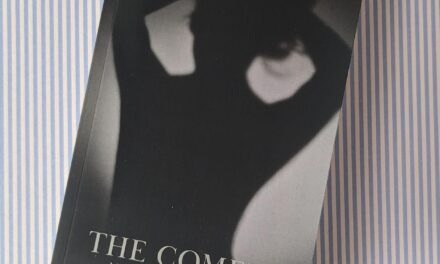Writing a pop song is more difficult than it looks. Compressing the poetic with the melodic in phrases memorable enough to catch the rhythm of the heart, its surface sheen of simplicity is the glamour it adopts to conceal its inner complexity.
But if writing a pop song is hard, writing fiction about pop is fraught with deeper pitfalls, exposing the writer to the perils of the fustiness that clings like mothballs to the suits of the middle-aged specimens who take the likes of Later…with Jools Holland and Mojo as gospel. All too often, fiction’s prosaic clumsiness falters before pop’s poetry, failing to distil its essence when pop is already a distillation. In this respect, Benjamin Myers’ latest novel, Rare Singles, is an achievement. Recognisably a love song, it is also a love song to love songs in general, and Northern Soul music in particular.
Rooted in workaday lives, without shying away from their socioeconomic realities or the escape routes they necessitate, Myers’ narrative plots the points that bring the back stories of his protagonists, Bucky and Dinah, into parallel. The former is an American widower addicted to opioid analgesia who once recorded the type of single beloved of crate-diggers and aficionados, rarer than gold dust and still more lustrous, and the latter a Scarborough shop worker, whose passion for Northern Soul broadens the horizons of a life otherwise constricted by a joyless marriage.
It takes a little time to find its groove, for Bucky’s voice to click into verisimilitude, and to read more like an American original and less like an English cover version. But once it does, the swell of its arcs is hard to resist. In particular, Myers excels in his evocation of Scarborough, scratching away at each successive layer of flaking paint that glosses over the ironwork of a once-grand seaside town, now corroded as much by indifference as salt water.
 The presumably fictional Majestic Hotel, in which Bucky is put up for the weekend of the novel’s duration, becomes, like Mervyn Peake’s Gormenghast, almost a character in itself, a place in which one can both lose and find oneself. There’s a sense of dislocation in Myers’ summoning of its nocturnal presence that renders it darkly magical, a place potent with possibilities. Partially embodying this is the benign presence of hotel cleaner Shabana, a migrant from Afghanistan with a penchant for music of a more contemporary kind and a pithy knack for observing the misbehaviours of the mainly English clientele.
The presumably fictional Majestic Hotel, in which Bucky is put up for the weekend of the novel’s duration, becomes, like Mervyn Peake’s Gormenghast, almost a character in itself, a place in which one can both lose and find oneself. There’s a sense of dislocation in Myers’ summoning of its nocturnal presence that renders it darkly magical, a place potent with possibilities. Partially embodying this is the benign presence of hotel cleaner Shabana, a migrant from Afghanistan with a penchant for music of a more contemporary kind and a pithy knack for observing the misbehaviours of the mainly English clientele.
That occasionally subplots are allowed to peter away, as with a portentous seagull who, in the end, signifies nothing, and that the more minor characters are less fully realised, ultimately does little to detract from the way that Bucky and Dinah are themselves fleshed out, how the burdensome griefs of the one-time soul singer find affinity in the accumulated bruises of Dinah’s lifetime of disappointments.
If the ending has a cinematic neatness that is at one remove from likelihood, the contrivance which turns Bucky’s fortunes nonetheless feels as earned as the decision that removes Dinah’s life from its locked groove into something more self-determined and free-wheeling. Equally to the point, like the middle eight that builds to the final, glorious chorus, it’s a bridge that positively demands the required suspension of disbelief.
With all the aplomb of a showman, Myers‘ tale ultimately makes good on pop’s most reassuring promises, suspending our cynicism for three minutes and more. It’s well worth giving it a spin.
Rare Singles by Benjamin Myers will be published by Bloomsbury on August 1, 2024. For more information, click here.








